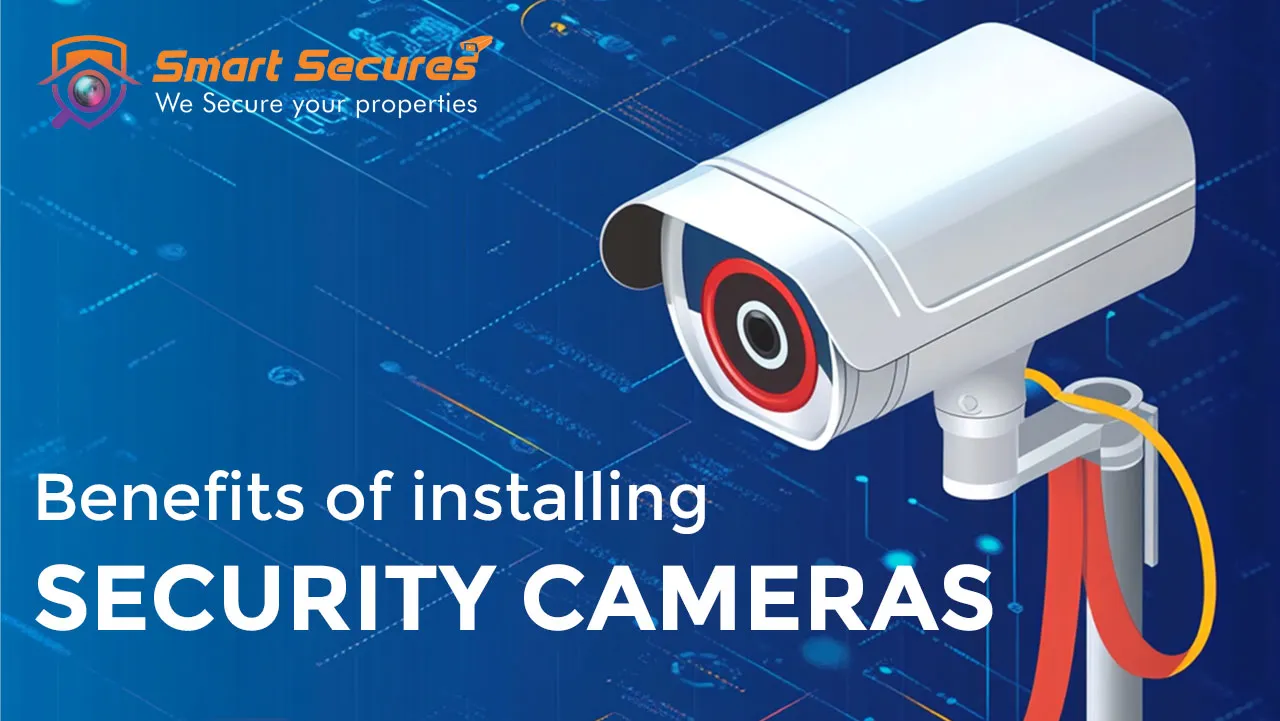Home > Blog > Boost Home Security with 24/7 Monitoring & CCTV Cameras
In today's world, keeping your home or business safe is important. Installing security cameras has many benefits. They help stop crimes, watch over things all the time, and make you feel safer.

In today's world, keeping your home or business safe is important. Installing security cameras has many benefits. They help stop crimes, watch over things all the time, and make you feel safer.
This guide will show how installing CCTV cameras, including bullet CCTV cameras, can make your home or business more secure. We will look at how these cameras can help keep you safe.
Installing security cameras is not just about keeping an eye on things. It's about building a strong security system. This system helps watch over your property 24/7, keeps it safe, and stops crimes from happening. Here are the main reasons why getting CCTV cameras for your home and business is a smart choice.
One of the biggest reasons to install security cameras is that they help stop crimes. When people see cameras, they are less likely to commit crimes. Research shows that a good outdoor security camera system can lower the chances of break-ins and vandalism.
For businesses, having cameras doesn’t just stop outside criminals. It also makes employees less likely to steal or do anything wrong, because they know their actions are being recorded.
One big benefit of modern security systems is the ability to watch over your property all day, every day. With 24/7 monitoring, you can make sure your home or business is safe, whether you're there or not. You can even watch live footage using a mobile app. This gives you peace of mind, even when you're not at home.
For businesses, this constant monitoring helps keep track of what's happening, even during the night, and helps prevent security problems when the business is closed.
Security cameras play a huge role in keeping your home safe. Placing outdoor cameras at spots like doors, windows, and driveways helps you keep an eye out for anything unusual. Whether you're protecting your family or valuable things, CCTV cameras add an extra layer of safety.
Features like motion detection and night vision make outdoor cameras even more important for home protection. They provide 24/7 surveillance and send alerts if something suspicious happens.
For business owners, security cameras do more than just stop crimes. They can also help monitor how employees are doing their work, keep customers safe, and make sure everything is running smoothly. In stores, for example, cameras can help owners see how customers behave and catch any potential shoplifters.
In places like warehouses and offices, installing CCTV cameras can help check the work environment, improve how things are done, and make sure safety rules are being followed.
With modern security systems, you can watch your home or business from anywhere. Many CCTV cameras have cloud storage and work with mobile apps. This lets you see the footage live on your smartphone. This remote access keeps you in control of your property’s security, no matter where you are.
Also, many systems send alerts when they detect motion or when someone enters a restricted area. This means you can act quickly to possible threats, lowering the risk of damage or loss.
If a crime happens, having security cameras means you will have video footage to use as proof. High-definition cameras can capture clear images of suspects, vehicles, and other important details. This helps the police identify and catch the criminals.
Video footage is very helpful for investigations and insurance claims, whether it's for break-ins, vandalism, or workplace accidents.
Installing security cameras is a more affordable option compared to hiring full-time security guards. The initial cost of cameras might seem high, but the long-term benefits are much greater. With 24/7 monitoring, real-time alerts, and the ability to stop crimes, security cameras give you a full security solution without the need to pay for staff every month.
Having a security camera system can also make your property more valuable. Homes and businesses with security systems are more attractive to buyers because they feel safer. If you're selling your property or want to increase its value, investing in a good security system is a smart choice.
Many insurance companies give discounts on property insurance if you have security cameras installed. Having outdoor cameras and a good security system helps stop theft, vandalism, and damage to your property. This also lowers the chance of needing to make an insurance claim. Installing CCTV cameras not only keeps your property safe but can also help you save money in the long run.
Security cameras, especially outdoor ones, are great for watching deliveries and visitors. You can make sure CCTV camera packages are delivered safely and that no unauthorized person enters your property. This is especially helpful for businesses that receive lots of deliveries.
While it’s possible to install CCTV cameras yourself, having a professional ensure proper CCTV installation services can maximize their effectiveness.
The lifespan of CCTV cameras depends on the brand, model, and CCTV maintenance services. Typically, they can last for several years with proper care.
Yes, many modern CCTV systems allow remote access through mobile apps or computers.
Yes, CCTV cameras can be used to monitor pets and ensure they are safe while you are away.
Most CCTV cameras come with infrared technology, allowing them to capture clear footage even in low-light or dark conditions.

5,852 reviews